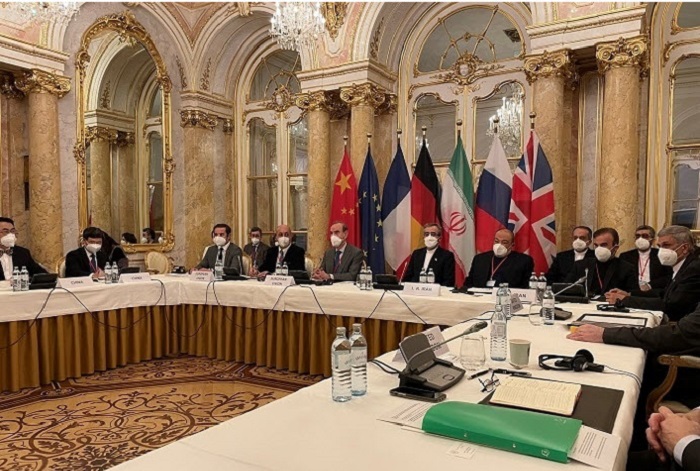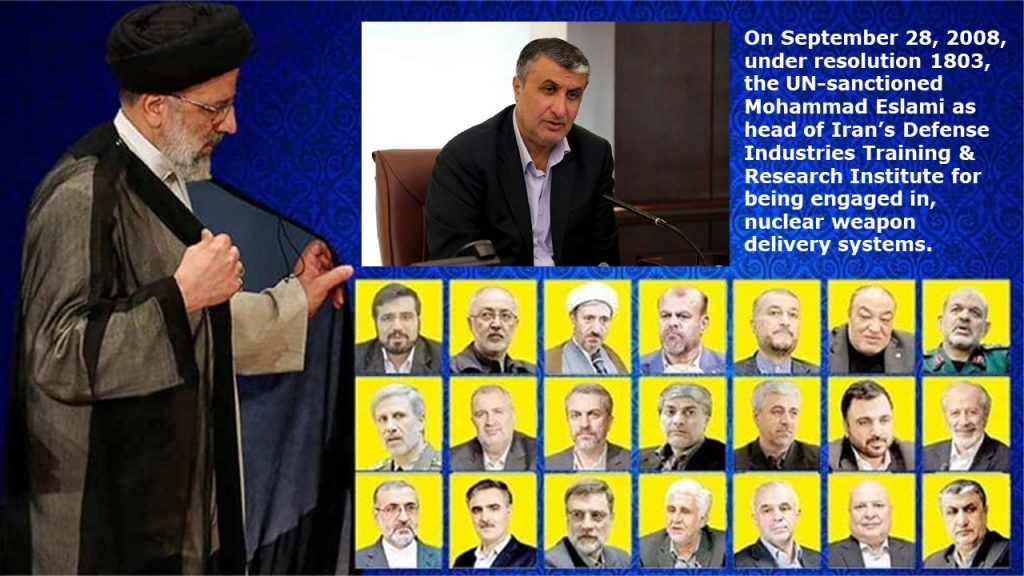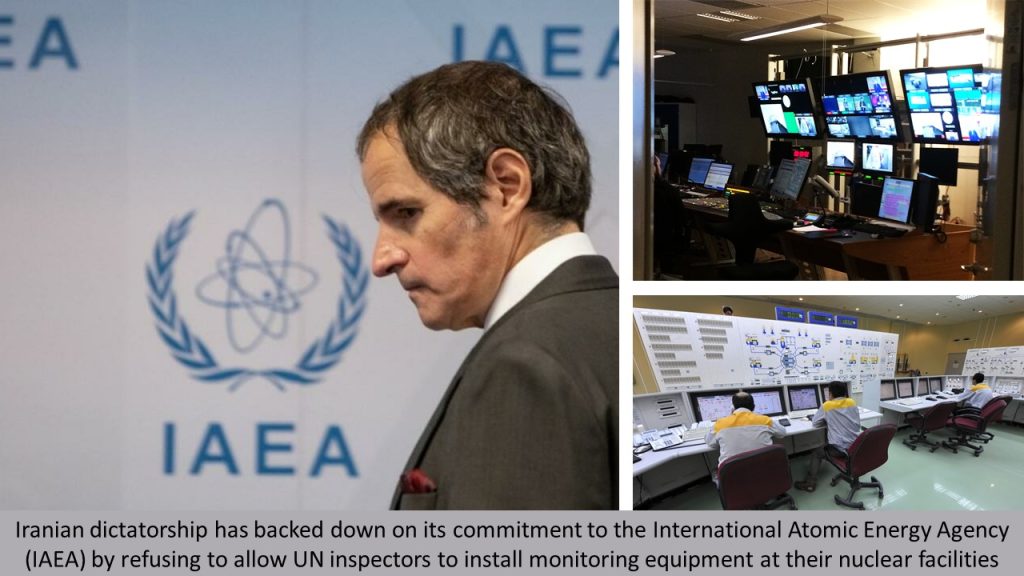
(NCRI) and (PMOI / MEK Iran): Iranian officials set highly strict requirements even before the talks began, including the easing.
In Vienna, talks aimed at reviving the 2015 Iran nuclear deal are likely to continue, but there appears to be little optimism that they will succeed. Of course, confidence had already plummeted after Iran withdrew from plans for a new round of talks in June, effectively halting the process for five months. When the process began again last week, it was accompanied by statements from Iranian officials that not only reaffirmed but also emphasized the regime’s harsh stance.
The regime ask to complete release from US sanctions
As Western participants in the Vienna talks expressed their anger and irritation over Tehran’s apparent inability to compromise over the course of the week, that situation gained wider awareness. The regime continues to demand complete release from US sanctions without making any concessions in return. Last week, the Iranians offered “proposals that walked back anything – any of the compromises Iran had floated here in the six rounds of talks –, pocketed all of the compromises that others, particularly the US, had made, and then asked for more,” according to US sources.
This hard-line strategy, while frustrating to many, comes as no surprise to anyone who is familiar with the Iranian regime. When the talks were still in Rouhani’s hands, the regime’s talking lines concerning upfront sanctions removal surfaced. Since then, Tehran has shifted even more to the extreme, with Supreme Leader Ali Khamenei supporting the election of Ebrahim Raisi, one of his favorite clerics, as the country’s next president.

(PMOI / MEK Iran) and (NCRI):Iran: Mohammad Eslami, the new head of the regime’s Atomic Energy Organization was the principal liaison with Abdul Qadeer Khan to acquire knowledge of the atomic bomb.
Raisi’s “election” forced the regime to postpone the talks
Raisi’s “election” in June forced the regime to postpone the Vienna negotiations, and regime critics have warned that the regime’s nefarious operations might expand in a variety of ways since then. Intransigent statements in Vienna have backed up these forecasts, as has a surge in internal dissent and associated violent repression, as well as an overall increase in the Iranian regime’s rate of executions.
The regime’s current stance at the Vienna negotiations is only an extension of this phenomenon, and Western parties should have known what to expect. Following the IAEA’s latest quarterly report on Iran’s nuclear program, Raisi’s director of the Iranian nuclear authority openly boasted about the IAEA allegedly underestimating the amount of uranium enriched to 20 percent fissile purity at the country’s nuclear facilities.

(PMOI / MEK Iran) and (NCRI): The regime’s current stance at the Vienna negotiations is only an extension of this phenomenon, and Western parties should have known what to expect.
Even according to IAEA estimates, enriching the regime’s present stockpiles may provide more than half the amount of weapons-grade uranium required for a nuclear bomb. And the stage appears to be prepared for Iran to achieve that further enrichment relatively rapidly, given that specific facilities have set up advanced enrichment centrifuges in a logical order, in plain violation of the 2015 accord.
According to Iran’s nuclear leader, Mohammed Eslami, the country has at least 50% more 20 percent enriched uranium than the IAEA stated. His rhetoric highlights the reality that nuclear inspectors have been denied access to surveillance footage and other data from Iranian installations since February.
Of course, there is every reason to anticipate that Iran’s foes will be able to get beyond those barriers. However, the longer they allow Iran to develop its nuclear infrastructure while insisting that US sanctions be lifted, the more likely it is that they will be forced to do so at some point. Now that Iran’s commitment to a hard-line policy in the nuclear talks has been established, it’s time for Western participants to respond in kind by activating the snapback mechanism and resuming global sanctions and six UN Security Council resolutions.
(PMOI / MEK Iran) and (NCRI): Now that Iran’s commitment to a hard-line policy in the nuclear talks has been established, it’s time for Western participants to respond in kind by activating the snapback mechanism and resuming global sanctions and six UN Security Council resolutions.
MEK Iran (follow us on Twitter and Facebook)
and follow Maryam Rajavi’s on her site Twitter & Facebook
and follow NCRI (Twitter & Facebook) and People’s Mojahedin Organization of Iran – MEK IRAN – YouTube

